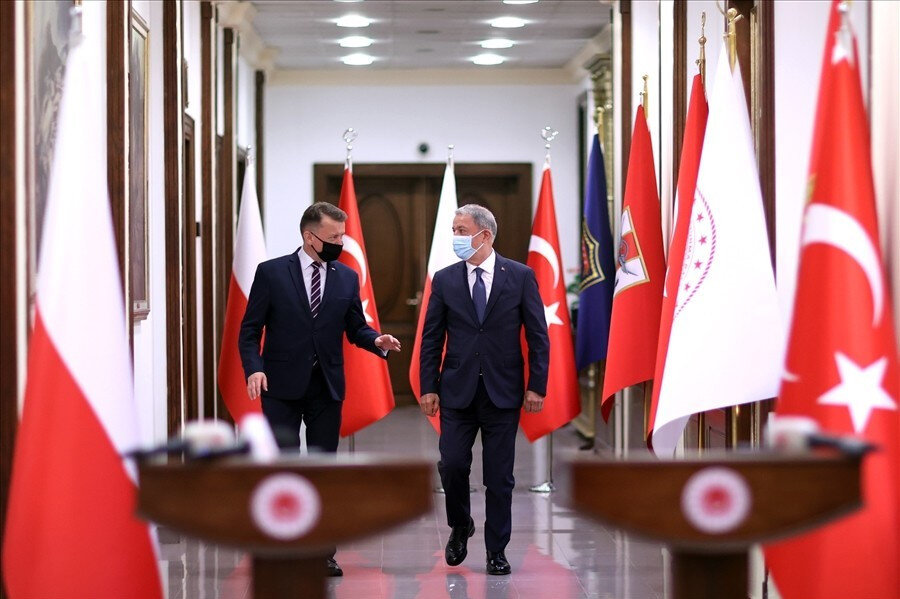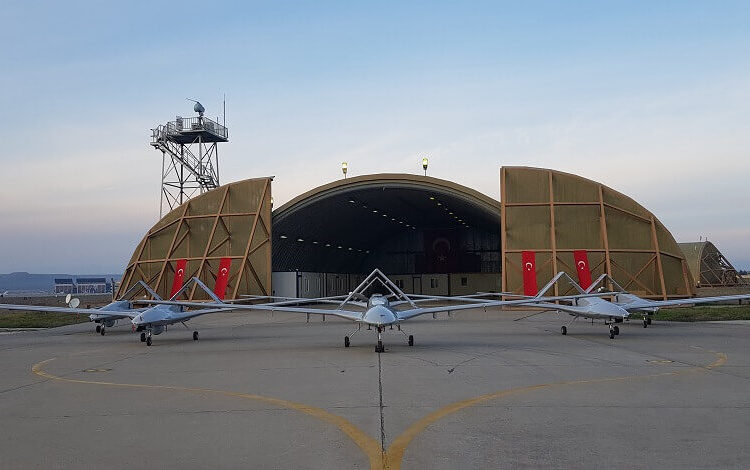Levent Kenez/Stockholm
Turkey and Poland signed an agreement ensuring the confidentiality and protection of data within the scope of their cooperation in the defense industry. The agreement, obtained by Nordic Monitor, is a part of a recent drone deal between the two countries.
The agreement, which was signed on May 24, 2021 in Ankara by the countries’ defense ministers, is in the process of approval by the Turkish parliament. It is expected to soon be put into effect, considering that the first drone delivery to Poland will be made this year.
The text of the agreement on “Mutual Protection of Classified Information in Defence Industry” between Poland and Turkey:
The deal stipulates how security clearances will be provided for private contractors and sub-contractors who perform work within the scope of the countries’ defense industry cooperation. Any possible security violation in one party will be investigated immediately and reported to the other party.
Visits to facilities involving access to classified information will take place with the written consent of the receiving state authorities. Possible disputes will not be referred to any national or international tribunal or third party for settlement as the agreement envisages that such differences will be settled between the parties.
The agreement will be in force for five years and automatically renewed for another five years unless terminated by either party with 30 days’ advance notice through diplomatic channels.
Turkey and Poland signed a deal for the sale of Bayraktar TB2 unmanned combat aerial vehicles (UCAV), making Poland the first NATO and European Union member country to purchase Turkish drones during Polish President Andrzej Sebastian Duda’s official visit to Turkey in May 2021.

According to information obtained by Nordic Monitor, Poland will purchase three ground stations and two simulators in addition to 24 military drones. One of the simulators will be deployed at the aviation academy in Deblin and the other to the UCAV base in Mirosławiec.
The agreement includes two-year technical support and training of 192 Polish officers who will serve as drone operators, commanders and instructors. All training sessions will take place entirely in Turkey in four groups at different times, taking 15-17 weeks for each group.
Delivery will take place over two years in batches of six, starting by October 31, 2022. The second set is planned to be delivered on April 30, 2023. The date for the third batch is October 31, 2023, and the last is due on April 30, 2024. The total cost is estimated at approximately $270 million.
Turkey and Poland are in close cooperation in military areas. Last year, the defense ministers of the two countries met twice in five months. Hulusi Akar, who welcomed his counterpart to Ankara in May 2021, paid a return visit in October 2021. Military experts said the two visits made in a short period of time were due to the details of the arms deal.
Polish Defense Minister Mariusz Błaszczak previously said the cooperation between the two countries is not limited to NATO, stating that Poland intends to purchase new weapons systems from Turkey.
It is no secret that Turkish President Recep Tayyip Erdoğan, his family members and his business associates benefit immensely from the defense industry and military equipment sales. Bayraktar TB2 military drones are produced by the company owned by Erdoğan’s son-in-law, which takes advantage of all state facilities but also earns high profits in the local and international market with the sale of weapons, for which the only decision-maker is his father-in-law.
An important reason for choosing Turkish drones is that Turkey does not have a long export approval process unlike the US and the European Union.

However, the effects of the drone trade on Turkish foreign policy, called “drone diplomacy” by many, are undeniable. While Erdoğan has offered to sell drones to every African country he visited, some deals began to pose risks for Turkey.
For instance, Kyiv’s targeting of Russian separatists in Donbas with Turkish drones angered Russia last year. Moreover, Turkey and Ukraine decided to establish a joint production facility in Ukraine amid tensions between Russia and Ukraine.
Finally, Turkey had to move its embassy in the Ethiopian capital of Addis Ababa to Kenya after Tigray militia members fighting the federal government threatened Turkey because of the drones it had sold to the Ethiopian army.












